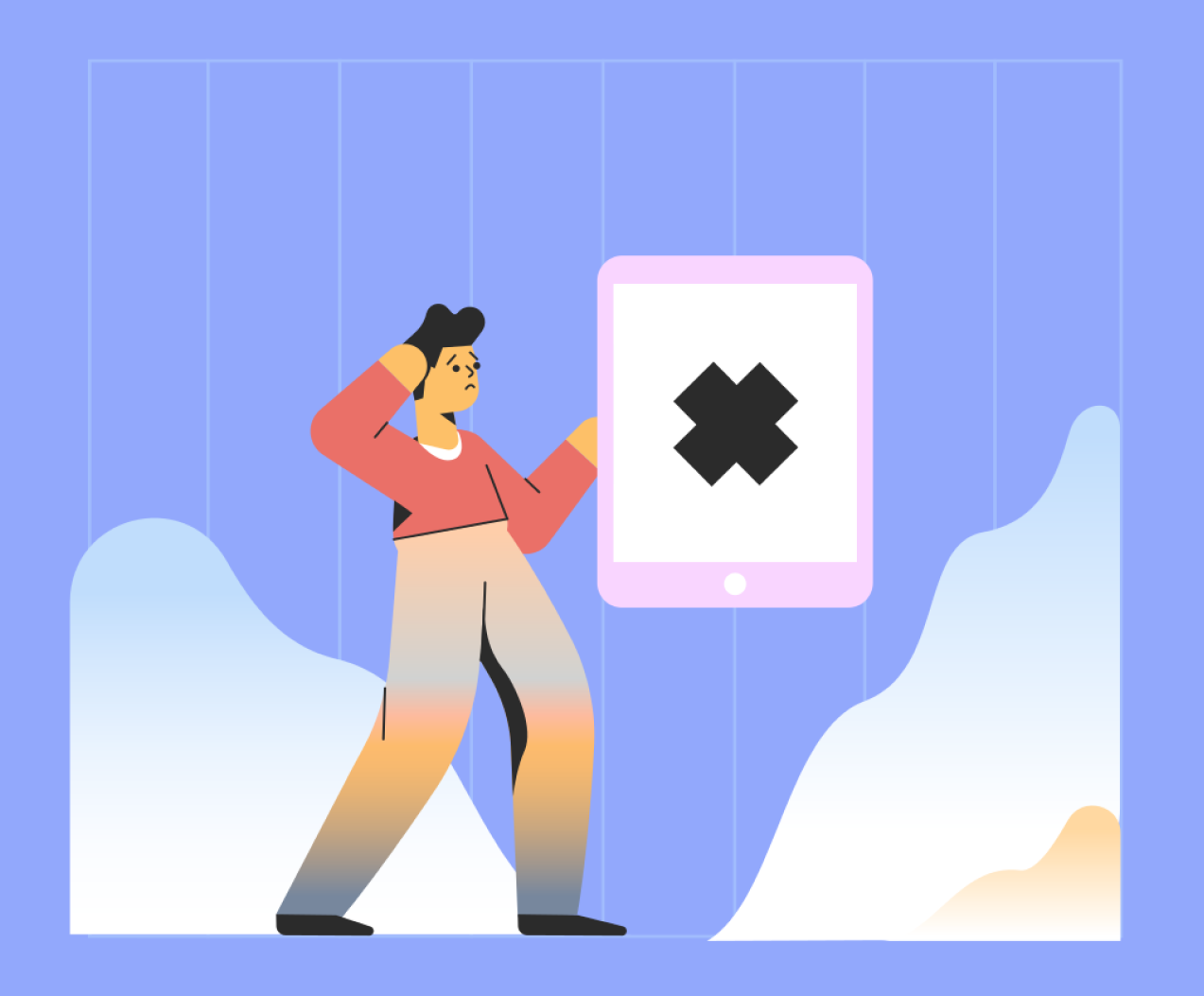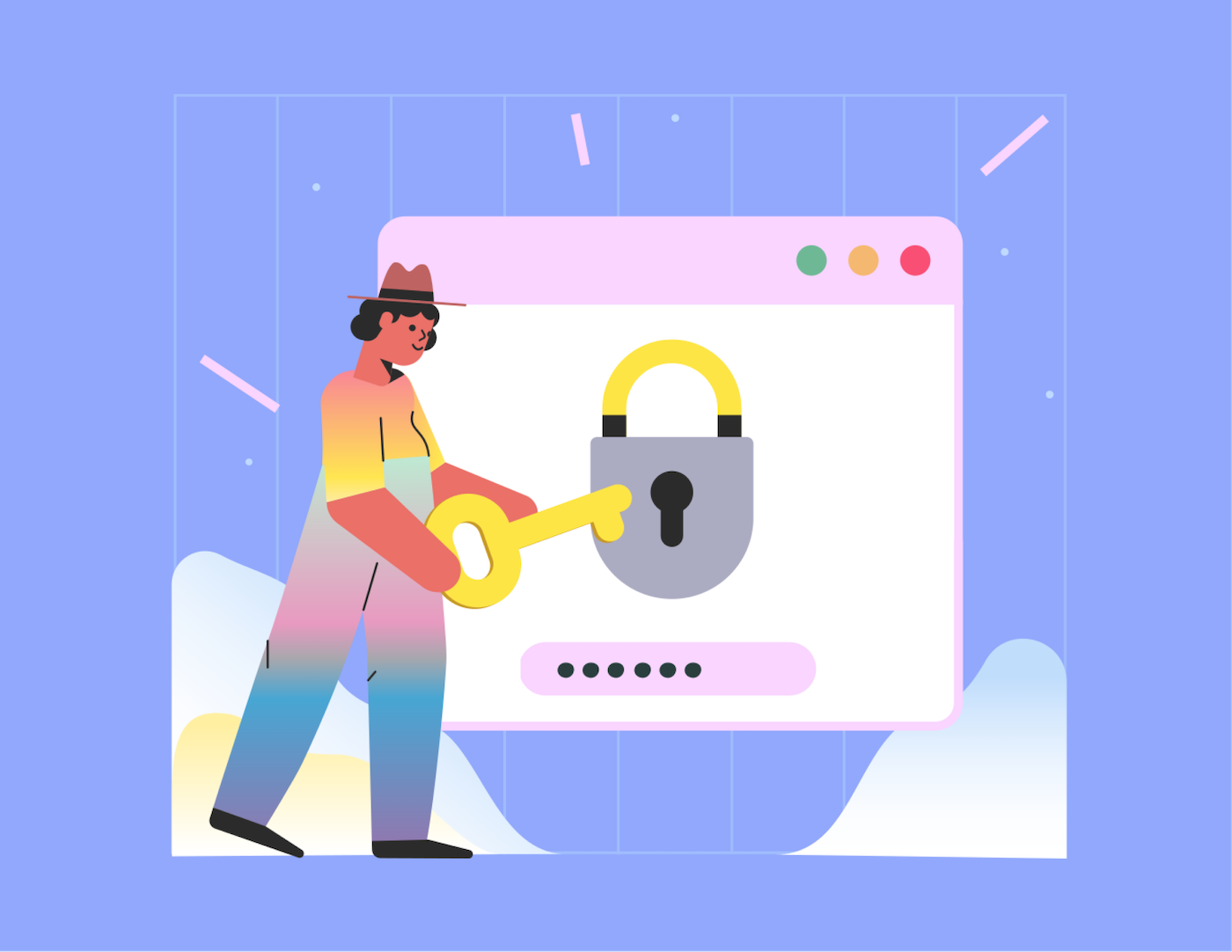If you’re a freelance designer or creative entrepreneur, you may have heard the word “cybersecurity” buzzing around a lot lately—especially in the last two years as more businesses lean into the digital world and online tools. But with new changes come new opportunities, both for businesses and cybercriminals.
Let’s dive into what cybersecurity really means and how you can use it to protect your business — whether you’re a freelance designer or a growing creative agency.
✏️ Thanks to our friends at Avast Business for sponsoring this blog post! Illustrations by Victoria Chepkasova from Ouch!
Cybersecurity: defined
Cybersecurity is the combination of tools, technologies, and practices used to protect computers, networks, devices, systems, and data from unauthorized access or attack.
Cybercrime can include the use of malicious software, theft of sensitive information, extortion, and business disruption. You may also hear cybersecurity referred to as IT security.
TL;DR - Cybersecurity keeps your digital devices protected from cybercriminals who want to disrupt your business with malware and other tactics.

Cybersecurity categories
To get an even better idea of what cybersecurity is, let’s take a look at some key types of cybersecurity and how they work.
🌐 Network security
Network security safeguards your internal computer networks and includes the protection of both hardware and software. It prevents threats like intruders or malware from entering your network and spreading. Network security tools include antivirus and anti-malware software, firewalls, and virtual private networks (VPNs).
👩💻 Application security
Application security aims to increase the security of your apps by removing vulnerabilities and enhancing security features. Although most of this will be done at the development stage, updates and patches will be released after an app has been launched.
Common threats to applications include unauthorized access to sensitive information and modification. To ensure robust application security, consider using a patch management tool to regularly check for new patches and updates and install them as soon as possible.
📱 Endpoint security
Endpoint security protects all devices connected to your network, such as desktops, laptops, servers, and mobile phones. They will be protected against cyberthreats like unauthorized access, data breaches, malware, and ransomware. Common endpoint protection solutions include antivirus software, VPNs, and anti-phishing email scanners.
📁 Data security
Data security refers to the policies, processes, and technologies you have in place to prevent data from being modified, destroyed, or disclosed, whether accidentally or maliciously. Examples of data protection practices include using strong passwords to avoid unauthorized access, running regular system backups to aid recovery, and using encryption to prevent data from being easily read.
Why is cybersecurity so important?
Cyberattacks can cause both financial and reputational damage to businesses, especially to those that aren’t prepared or equipped to bounce back. Now that many businesses are operating online more than ever, strong cybersecurity measures are a must. To put it into context, let’s take a look at a few numbers.
- 43% of data breaches involve small and medium businesses
- 83% of SMBs are not financially prepared to recover from a cyberattack
- 43% of SMBs do not have any cybersecurity plan implemented
Many small businesses, very small business owners, and freelancers typically don’t have the same resources as larger companies to build out comprehensive cybersecurity. But that doesn’t mean that the only option should be to settle for vulnerabilities.

How to improve your cybersecurity
The keys to effective cybersecurity are a proactive approach and multiple layers of defense. To get you started, here are some simple steps you can take to instantly improve your cybersecurity posture:
✔️ Always install updates
Software vendors release updates and patches to fix vulnerabilities when they discover them, but this also makes the vulnerability known to cybercriminals who begin working to exploit it. This race against the clock makes it critical to regularly check for updates for your operating systems and other trusted software and install them sooner rather than later.
✔️ Safeguard passwords and use multi-factor authentication
Some hackers use a technique called brute-forcing, where they attempt to gain access to your accounts by rapidly trying thousands of possible passwords. The stronger your password, the less likely they are to succeed.
To add an extra layer of security, you should use multi-factor authentication (MFA), which requires two or more factors of authentication to access a system. These might include passwords, PINs, facial or voice recognition, fingerprints, and phone notifications.
You should use a different password for every account, website, or application you access. While this might not seem feasible, a password manager can help. This handy tool encrypts and stores each of your passwords, allowing you to easily access them across all of your devices. You can also use it to generate random, secure passwords.
✔️ Invest in training and education
Cybercriminals are becoming increasingly sophisticated, which means security cannot be a ‘set and forget’ solution. Educate yourself and your staff on the latest threats and security best practices, such as avoiding suspicious email attachments.
Keep in mind that people are often the weakest link in successful cyberattacks. Those with an understanding of the basics of cybersecurity will be better equipped to protect themselves and the company they work for.
✔️ Use trusted antivirus software
Antivirus software will protect you against a variety of threats. Its primary role is to proactively block, detect, and remove cyberthreats like viruses, malware, and ransomware before they can cause any harm. A comprehensive package should also include anti-spam and anti-phishing protection, a firewall, and browsing protection.
Get a proactive cybersecurity solution
At Avast Business, we believe that all businesses deserve high-quality cybersecurity, no matter their size. We offer two home office solutions, Small Office Protection and Essential Business Security, so that you have the flexibility to choose what works best for your business needs. Get device protection, data protection, IT support, and more — all with one powerful solution. Get the security you deserve. ■
About Avast — Avast delivers easy-to-use, affordable, and award-winning cybersecurity solutions to protect the devices, data, and networks of small and growing businesses. Backed by 30 years of innovation, our solutions are built to provide maximum protection so that you can worry less about cyberthreats and focus more on growing your business.
Find more Community stories on our blog Courtside. Have a suggestion? Contact stories@dribbble.com.








